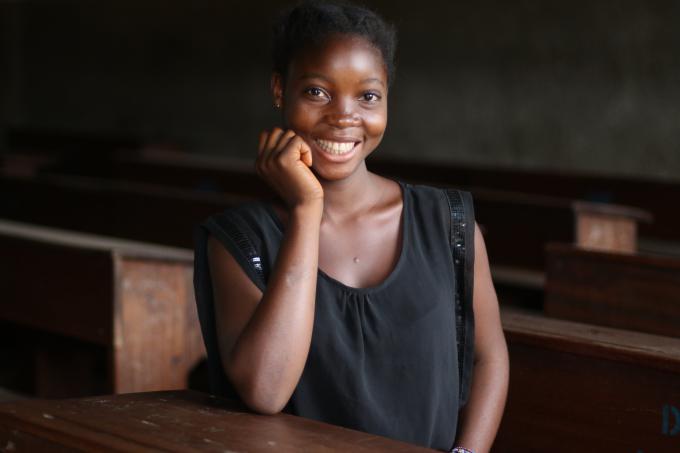Sidonie stays in school and transitions to Secondary School
Sidonie*, a young girl of 15, successfully passed the end of year exam in July to enter Grade 7 of secondary school. However, she almost abandoned school because her adopted parents wanted her to drop out and get married. “When my parents told me to drop out of school, it saddened me deeply because I love school,” Sidonie said. “Poverty is the main reason for my leaving school. I lacked everything, from what to wear and even what to eat. This is the reason my parents persuaded me to drop out of school for marriage to avoid mockery from friends. “
When her teachers at the GEC REALISE supported school learned that Sidonie was going to drop out of school and get married, they took action—with the school director of EP KABONGO 1 in Mbuji Mayi, they went to visit her parents at home and encouraged them to keep Sidonie in school. They explained that through the REALISE project, Save the Children would pay the school fees. “I was very happy when the teachers and director asked me to go back to school, Sidonie explained, “The idea of getting married made me very scared.
Girls in the most marginalized areas of DRC are most at risk of dropping out of education as they transition from primary to secondary education, and poverty is one of the main reasons girls like Sidonie drop out and are forced into early marriage. The DFID- funded GEC REALISE project in DRC, led by Save the Children, is working with schools and communities in 6 provinces of DRC to ensure that some 65,000 girls enroll in school, stay in school and transition to secondary school through an integrated set of interventions including provision of textbooks and classroom supplies, bursaries, Teacher Professional Development, Savings and Loans, and Girls Well-Being and Safeguarding Activities, and Drop Out Research.
Thanks to the intervention of her teachers and the support of the Girls Education Challenge, today Sidonie is happily continuing her studies in Grade 7 at another GEC REALISE supported school in Mbuji Mayi, Institut Ntungunuja.
 DR Congo
DR Congo 